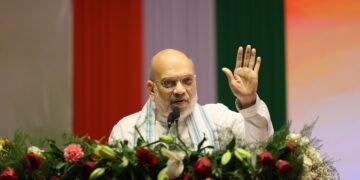The Supreme Court on October 16 decided to refer the challenge to the controversial Electoral Bonds Scheme to a five-judge constitution bench which will hear the case on October 31. The bench headed by Chief Justice of India D Y Chandrachud noted that in view of the importance of the issues raised, with regard to Article 145(4) of the Indian Constitution, the matter should go before a constitutional bench. The petitions challenging the Electoral Bonds Scheme were filed in 2017. The Electoral Bonds Scheme was introduced by the Centre through the amendments made to the Finance Act of 2017.
Several petitions are pending before the apex court challenging amendments through the Finance Act, 2017 with regards to electoral bonds. An electoral bond can be purchased by any individual, company, firm or association of persons provided the person or body is an Indian citizen or is incorporated or established in India. Only the political parties registered under Section 29A of the Representation of the People Act, 1951 and have secured not less than one per cent of the votes polled in the last general election to the Parliament or the Legislative Assembly, are eligible to receive electoral bonds.
A recent report by the Association of Democratic Reforms showed that between 2016-17 and 2021-22, seven national parties and 24 regional parties received a total donation of Rs 9,188.35 crore from electoral bonds. BJP, as the party in power, secures the highest donation among national political parties. More than 52 per cent of the BJP’s total donations were sourced from Electoral Bonds, amounting to Rs 5,271.9751 crore. The Congress secured the second-highest electoral bond donations, with Rs 952.2955 crore (61.54 per cent of its total donations), followed by the Trinamool Congress with Rs 767.8876 crore (93.27 per cent).
There have been several criticisms against the Electoral Bonds Scheme. Since electoral bonds are donations to political parties that hide the identity of the donors and recipients, they may compromise the right to know, which is part of the right of freedom of expression under Article 19 of the Constitution. Such anonymity may be compromised by government access to donor data. This implies that the government in power can leverage this information and disrupt free and fair elections. It also has the potential for unauthorised donations violating regulations.
As per Companies Act 2013, a company can make a political contribution only if its net average profit of three preceding financial years is at 7.5 per cent. The removal of this clause has raised concerns of black money in political funding through shell companies. The fact that such bonds are sold via a government-owned bank (SBI) leaves the door open for the government to know exactly who is funding its opponents. This, in turn, allows the possibility for the government of the day to either extort money, especially from the big companies, or victimise them for not funding the ruling party.

























